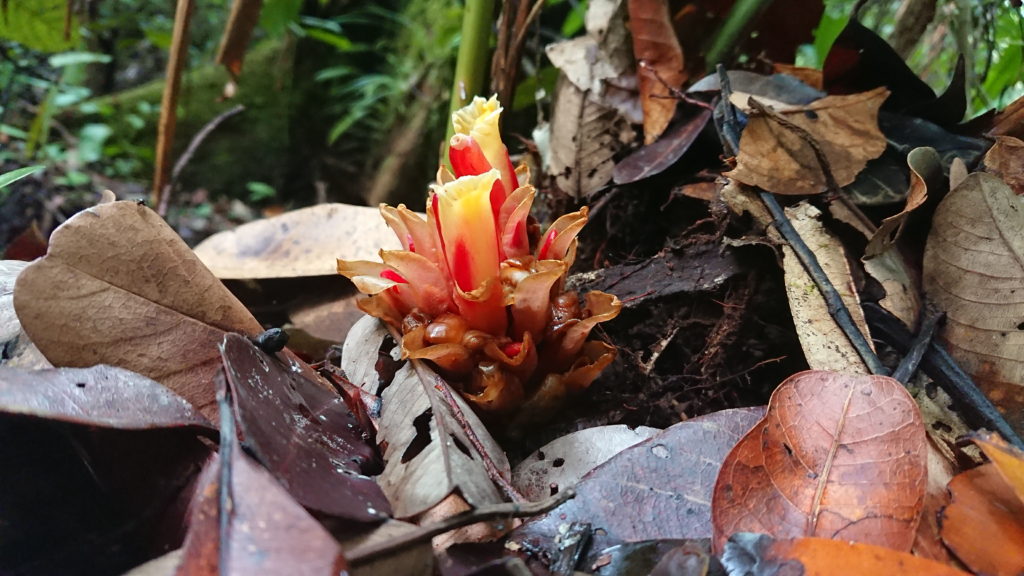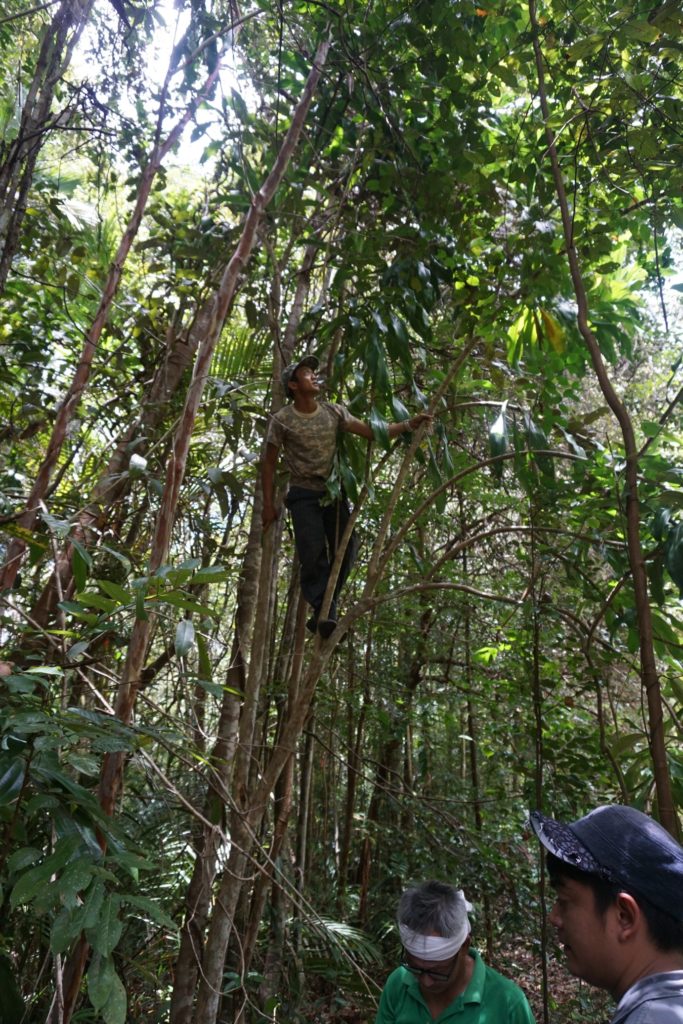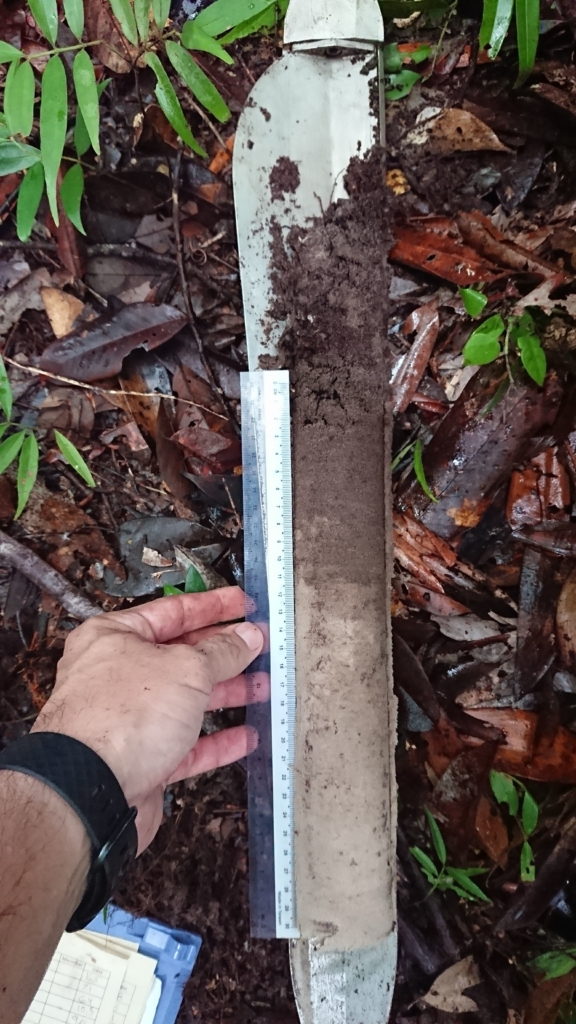From August to December 2021, a PhD candidate Colton Collins of Nanyang Technological University (NTU) have conducted a field research on plant-soil interactions in the Badas and Labi Forest Reserves, Belait District, Brunei. The aim of the study is to characterize peatland and kerangas forest and try to understand the factors that shape peat accumulation in tropical soils. This research is separated into two chapters.
The first chapter compares plant diversity, soil characteristics, and plant-soil interactions between peatland and kerangas forest. This required establishing nine paired plots, identifying and recording diameter at breast height (DBH) of trees within plots, collecting soil density samples and soil cores for nutrient analysis, as well as examining absorption of P and N in leaves of eight families. The eight families include Dipterocarpaceae, Myrtaceae, Lauraceae, Fabaceae, Euphorbiaceae, Arecaceae, Pandaceae, and Zingiberaceae.
For the second chapter, a reciprocal litter transplant experiment was established to determine if peat decomposer communities lack the ability to break down litter material. This tests if litter decomposes faster next to the plant it originates from (Home-field Advantage). Litter from five families that are found across all plots were used. These families include, Dipterocarpaceae, Myrtaceae, Lauraceae, Fabaceae, and Euphorbiaceae. After six months of decomposition, Colton will be back in May 2022 to collect and measure the litter.
This is a collaborative research project between the Institute for Biodiversity and Environmental Research (IBER) at UBD, led by Associate Professor Dr Rahayu Sukmaria Hj Sukri and NTU, led by Professor David Wardle and participated by Colton Collins as Professor Wardle’s PhD student, and Singapore-MIT Alliance for Research and Technology (SMART), led by Dr Alex Cobb. In addition, field work was supported by Jeffery Muli Anak Incham and Ramasamy anak Zulkiflee of SMART and tree identification by Jangarun anak Eri of Brunei Forestry Department, and lab support by Dr Salwana Jaafar of IBER.
Text by Colton Collins




